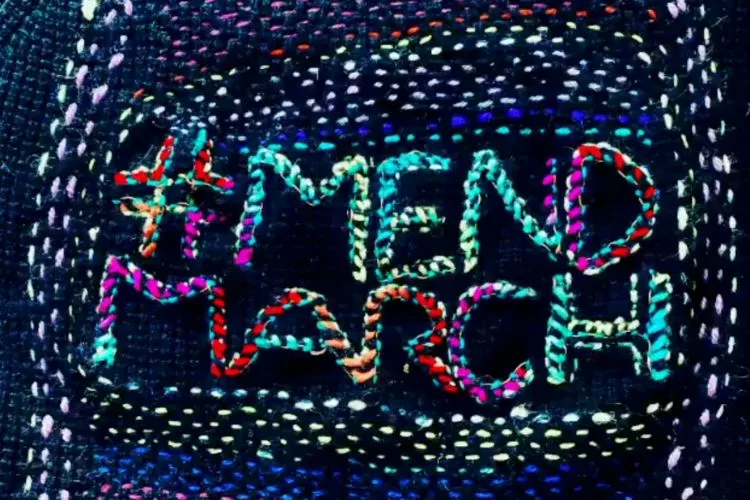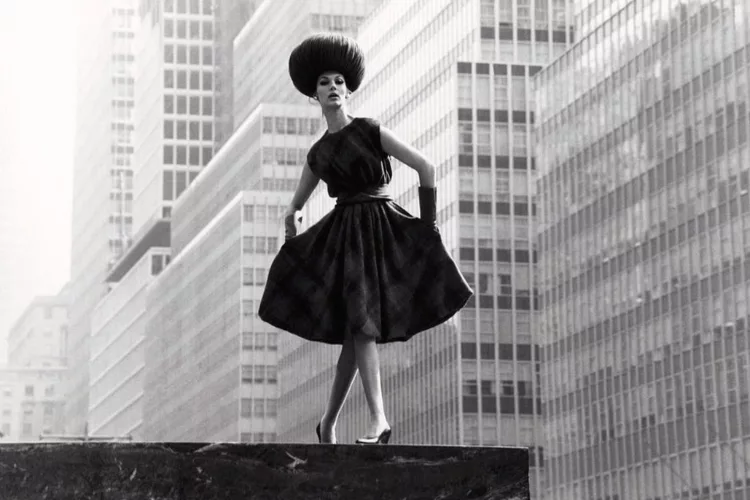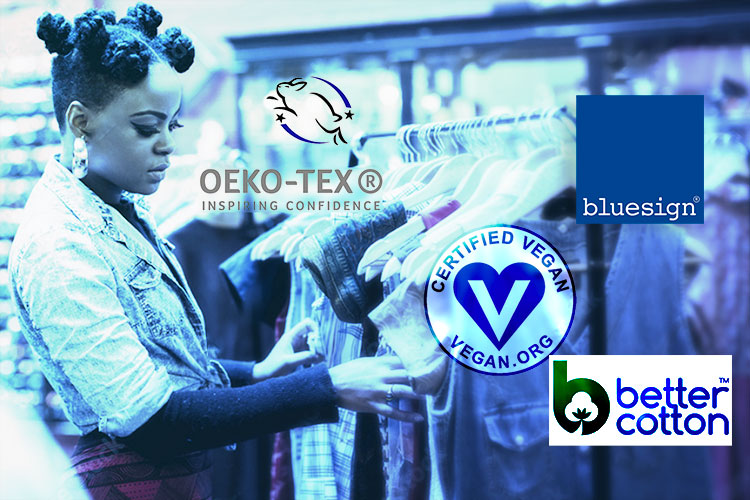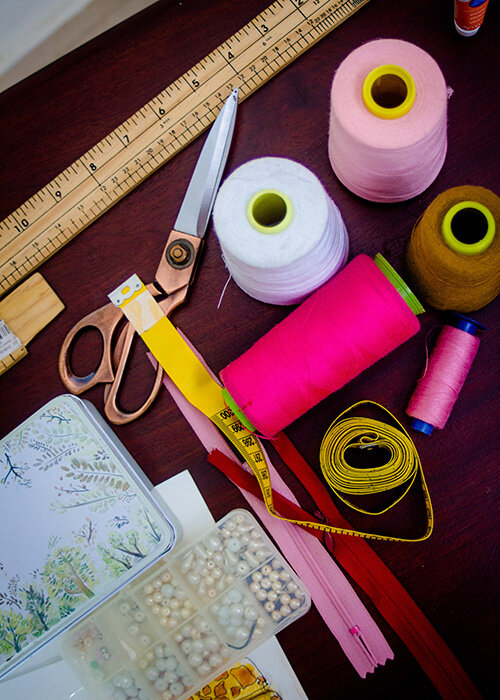
Mending and Styling and Sharing, OH MY!
Loved Clothes Last is a book written by Orsola de Castro, perhaps best known as one of the founders of Fashion Revolution: the largest fashion advocacy movement in the world. She was originally approached to write a book on mending and replied,
“Well I’m really bad at mending actually. I could do you a kind of ‘how to mend’ but I would be really happy to do a ‘why to mend.’ I could write a book about how we need to think differently around mending clothes and mending systems, repairing things in our wardrobe and repairing damage that was done to people and to planet.”
And how can we care for our clothes if we want them to last longer but we’re not sewing experts? According to the publisher:
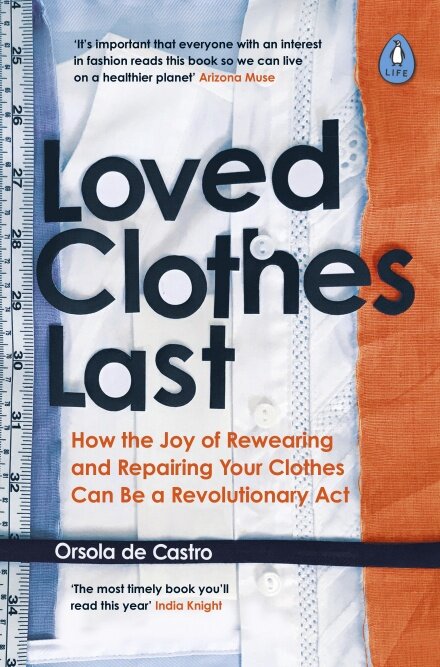
This book will equip you with a myriad of ways to mend, rewear and breathe new life into your wardrobe to achieve a more sustainable lifestyle. By teaching you to scrutinize your shopping habits and make sustainable purchases, she will inspire you to buy better, care more and reduce your carbon footprint by simply making your loved clothes last longer.
Following Orsola’s practical tips to lavish care and attention on the clothes you already own will not only have a positive environmental impact, but will be personally rewarding too: hand wash, steam and spot clean your clothes, air dry instead of tumble drying, or revive your clothes by sewing or crocheting.
The book definitely covers all of the above, but missing in that description is the wonderful writing style of Orsola. Yes, it is full of valuable information but written in a way that is almost conversational as if she is personally giving you advice. There are also clever graphics that are not unlike what you’d see on the Fashion Revolution website.
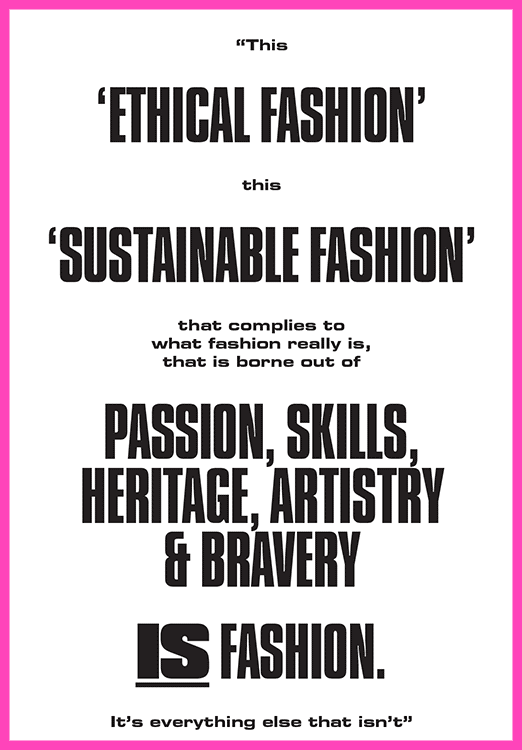
I’m not telling you everything that’s in the book because one, there’s too much and secondly that would spoil the fun of reading it for yourself. But here are a few things that struck me:
Mass produced luxury and fast fashion aren’t much different
We think of “fast fashion” as “the problem” when in truth it’s the current fashion production system and when you realize that, you begin to understand that mass produced luxury leads to the same problems of over consumption that always lands at the feet of fast fashion.
Luxury is not what it once was
Read “The rise and fall of a Gucci handbag” in the book for a great illustration of this point!
See “waste” as a resource
Before throwing something away stop to think about another use for it. Even if you can’t think of a way to reuse something, maybe you can give it to someone who would appreciate it. Either way, this mindset will completely shift your relationship to your belongings.
It’s not about a set of rules everyone must follow. It’s about being knowledgeable about the entire fashion system so you can make better choices.
This is similar to food: once you know things like the effects of the meat industry on the planet and/or why organic vegetables are better for the soil and for your body you can make your own choices. Maybe you’ll choose to be vegan. Or vegetarian. Or you’ll only buy organic meat. Or simply do meatless Mondays. There’s not one “right” way. Orsola advocates the same with fashion. Love the durability and affordability of synthetic fibers? Consider buying pieces like a jacket that needs to be washed less or wash them in a bag to catch their shedding fibers.
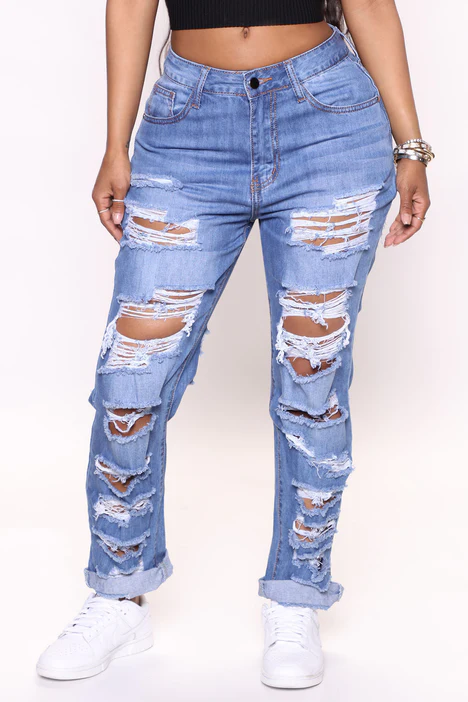
Buying distressed looking denim should be a permanent fashion don’t
The full details are in the book. I’ll just say that the methods denim companies use to rip and “sandblast” jeans are toxic for the workers and our planet. If you care about social justice and worker’s rights let brands know this is the wrong kind of “fashion statement” by refusing to purchase them.
My opinion does not matter. What matters is YOUR opinion.
Okay, Orsola actually says this in our interview. But basically the book says the same thing. She gives you the information and it’s up to you to decide what to do with it.
Read my interview with Orsola here
Order the book here
-Katya Moorman
Related Articles
Interview with Orsola de Castro
Visible Mending: Tips & Tricks
What Exactly IS Sustainable Fashion? We Asked An Expert!
Wear What You Already Own – How to Make it Easy



